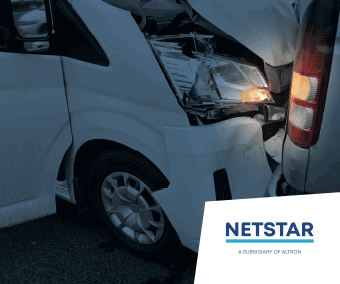The wrong company, abuse, sexual predators, social media, availability of information on the internet on just about anything…
The list of concerns parents have relating to their children today is endless.
How do we try to address these concerns without smothering or pushing them away?
While we cannot guard children 24/7 we can build trust, be available to them, educate them, pay more attention to their behaviour and set rules to create a safer environment.
Henning Jacobs, the trauma support co-ordinator at ER24, said parents need to spend more time with their children.
“The number one problem these days is that many parents do not spend enough time with children. If children do not get the attention they need at home, they could make the wrong choices, become vulnerable and put themselves in dangerous situations for example,” he said.
Apart from spending more time with your children, creating an open relationship with them is vital. “With an open relationship children will feel comfortable talking to parents about their problems.
“It is important to know how your child is doing emotionally. The only way parents will know this is if they build a relationship of trust with their children. Trust between a child and parent is vital. Children need to know parents trust them and that they care. If a parent knows their child well enough they will be able to pick up from their behaviour and talks that something is wrong. Pay attention to changes in personality or attitude. These could be signs that something is wrong.
There is also usually a problem when there is a drop in school marks and when children act strangely,” said Jacobs.
Parents should also remember not to be overprotective. Rather than preventing a child from going everywhere they want to go, assess the situation first.
Also educate them on what to do should a situation arise where they are. Jacobs said parents should also first give children a chance to prove their trust. Parents have to let children know they trust them. However, children need to know the rules will change if that trust is broken and that there are consequences should they break the trust.
Internet, cellular phones
The internet, cellular phones and social media have advantages but there are dangers as well.
“One of the most common dangers posed to children is sexual predators and people who abduct children. Pornography is also freely available,” said Jacobs.
How do we protect children? Jacobs said it comes down to knowledge. “Children need to be taught the positive and negative aspects of social media, the internet and use of cellular phones. Children should be made aware of the danger signs. They need to be educated on how predators for example work and what the warning signs are so they can protect themselves,” said Jacobs.
He added that parents should keep a close eye on people their children meet and chat to on social media.
“Children cannot use social media as they please. It has to be controlled. Parents need to know how to use cellular phones and the internet better than children to be able to check what they are doing. Children should have guided privacy. Parents should have a rule that children can have a cellular phone and access to internet, provided they, parents, are allowed to check their phones and internet history at any time. Children do not like boundaries but they have to have boundaries,” said Jacobs.
Sexual assault, abuse
Adults must make children aware of issues like abuse, violence and sexual assault. “Children should not be kept in the dark about these issues. Educating children will help them identify a threat and react promptly to help them avoid the danger. Parents should also not be negligent. They should try their best to ensure their children are safe with whom they were left in the care of,” said Jacobs.
Parents aware of sexual assault, abuse and violence against a child as well as other people aware of parents guilty of this should report it immediately to the police and contact a social worker for assistance. Victims should immediately seek the help of someone they trust.
“If they cannot tell anyone in the family, they should tell their teacher at school or call Childline. They can also go to a police station,” said Jacobs.
Remember that abuse of a child does not only refer to a child being beaten. There are many forms of abuse that parents should be aware of such as mental, emotional and verbal abuse. These forms of abuse cause just as much damage to a child.
“A child who goes through trauma such as abuse is changed forever. It impacts the rest of their lives,” said Jacobs.
Being a parent and even a child today is not easy. For advice or help, contact Childline on 08000 55 555 or the police on 10111.
ER24’s Emergency Contact Centre can be reached 24 hours a day on 084 124 for any medical emergency.
Issued by:
Chitra Bodasing
ER24 spokesperson
Also view:
Safe Swimming and Preventing Drowning


























